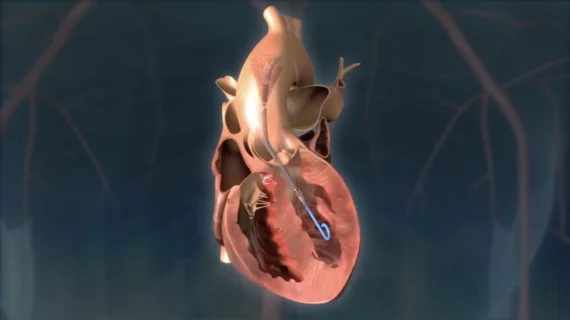FDA warns Abiomed about ‘significant violations’ related to its Impella heart pumps
The U.S. Food and Drug Administration (FDA) has issued a new warning letter to Abiomed, a Johnson and Johnson company, describing a variety of “significant violations” identified by the agency’s investigators. While the letter is dated Sept. 19, it was not added to the FDA’s website until Oct. 10.
The document opens by highlighting the fact that Abiomed’s Impella Connect System, a cloud-based tool used to monitor Impella heart pumps, qualifies as a separate medical device and requires certain FDA approvals as a result of that classification. The Impella Connect, however, was not put through the necessary approval process.
The FDA determined Impella Connect should be classified as a device largely due to the fact that it can remotely track the performance of technology known to provide temporary ventricular support to a patient’s heart. Patient-specific medical information is used to help detect life-threatening medical conditions, the FDA wrote, so the Impella Connect is technically its own separate medical device as opposed to just an add-on feature for existing devices.
The agency said Abiomed is required to submit certain data related to the Impella Connect System. A final determination will then be made regarding “whether the product may be legally marketed.”
FDA not satisfied with how Abiomed responded to safety concerns
According to the FDA, another ongoing concern is Abiomed’s response to complaints about medical devices failing to work properly. For example, the FDA noted that customer complaints about purge sidearm leaks in the Impella 5.5 with Smart Assist devices were first noted back in February 2020, but Abiomed did not take the necessary actions to explore the complaints.
“Your firm failed to conduct health hazard evaluations and issue formal recall actions for distributed medical devices based on risk to health,” the agency wrote.
In June 2023, Abiomed did issue a voluntary recall of more than 450 of the Impella 5.5 devices due to similar sidearm leaks.
The FDA summarized additional concerns related to the Impella series of devices before concluding its letter with a warning for Abiomed.
“It is your firm’s responsibility to ensure compliance with applicable laws and regulations administered by FDA,” the agency wrote. “The specific violations noted … may be symptomatic of serious problems in your firm’s manufacturing and quality management systems. Your firm should investigate and determine the causes of any violations and take prompt actions to address any violations and bring the products into compliance.”
Abiomed responds to the FDA’s warning
Abiomed, which Johnson and Johnson acquired for approximately $16.6 billion in late 2022, has said it is already working to address these concerns.
“We are working closely with the FDA to fully resolve the observations as quickly as possible,” the company said in a statement emailed to Cardiovascular Business. “As we continue to integrate into Johnson & Johnson MedTech, we are implementing quality system process improvements related to the observations, and many of these corrective actions are already in process. We are dedicated to the mission of providing safe and effective life supporting heart pump technology to patients worldwide, and Impella heart pumps remain on the market and available for patients in need.”
Click here to read the full FDA warning letter.

